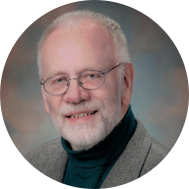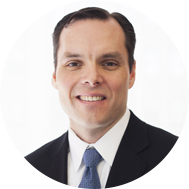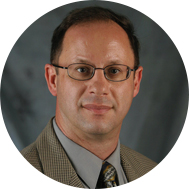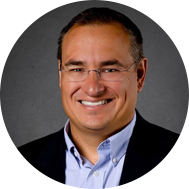December 7, 2021
2:00 – 3:30 p.m. EST
Join members of the Forensics Engineering Congress for a Virtual Roundtable on Tuesday, Dec. 7, 2021, 2:00 – 3:30 p.m. EST. Find out the Whos, Whats, and Whys around Forensic Engineering.
High profile failures, such as terrorist attacks, wildfires, hurricanes, tornadoes, earthquakes, and other natural disasters, and our attention to the state of the infrastructure have raised the awareness for the need for forensic engineers. If forensic engineering interests you and wish to learn more about how to become a forensic engineer and where to learn more, you are invited to attend ASCE’s 90-minute, 2021 Virtual Forensic Engineering Roundtable.
The 2021 Forensic Engineering Virtual Roundtable is held in conjunction with the 9th Congress on Forensic Engineering to be held on November 4–7, 2022.
In this roundtable you will learn:
- What is Forensic Engineering?
- What is the Forensic Engineering Division and what does it do?
- Learn about failures relevant to your work
- Learn more about the 9th Congress on Forensic Engineering
Meet the Panelists
Ron Anthony, Aff.M.ASCE, President and Wood Scientist, Anthony & Associates, Inc.
 Ron Anthony received an M.S. in Wood Science and Technology from Colorado State University. Prior to forming Anthony & Associates in 1999, he conducted research and consulted on wood properties and the use of wood in construction applications.
Ron Anthony received an M.S. in Wood Science and Technology from Colorado State University. Prior to forming Anthony & Associates in 1999, he conducted research and consulted on wood properties and the use of wood in construction applications.
He conducts forensic investigations on wood-related failures, such as the collapse of Pavilion I at the University of Virginia and the Texas A&M bonfire collapse. Mr. Anthony is the 2002 recipient of the James Marston Fitch Foundation Grant for his approach to evaluating wood in historic buildings; he is a Fellow in the Association for Preservation Technology International (APTI), and a recipient of APTI’s Harley J. McKee Award.
His activities extend to organizing and participating in workshops and lecturing on wood properties and the use of wood in construction applications. He has lectured at MIT, Columbia University, Princeton University, the University of Pennsylvania, Oregon State University, the University of Colorado and others on investigating wood in historic buildings and given presentations at the Association for Preservation Technology International, Colorado Preservation, Inc., American Society of Civil Engineers conferences, and ICOMOS, SHATiS, RILEM, and NCSEA symposia.
He has authored over 120 publications; participated in conferences and seminars; and consulted throughout North America, South America, Europe, Asia, Africa, Australia and the South Pacific. He is a member of the Association for Preservation Technology International, the Society of Wood Science and Technology, the Forest Products Society, the Timber Framers Guild, the American Wood Protection Association, the American Society for Testing and Materials, and the Forensic Engineering Division of the American Society of Civil Engineers.
Benjamin M. Cornelius, P.E., M.ASCE, Partner, LERA Consulting Structural Engineers, RLLP
 Structural designer and forensic engineer Benjamin M. Cornelius grew up with a passion for buildings and what makes them stand up—to people, the environment, and time. With that came a curiosity for why certain buildings fall short. At the Pennsylvania State University, Ben studied architectural engineering with an emphasis on structural systems design and went on to join the firm of Leslie E. Robertson Associates (LERA) Consulting Structural Engineers in New York.
Structural designer and forensic engineer Benjamin M. Cornelius grew up with a passion for buildings and what makes them stand up—to people, the environment, and time. With that came a curiosity for why certain buildings fall short. At the Pennsylvania State University, Ben studied architectural engineering with an emphasis on structural systems design and went on to join the firm of Leslie E. Robertson Associates (LERA) Consulting Structural Engineers in New York.
After nearly 2 decades of designing structures for a range of projects—including the Broad Museum in Los Angeles, the renovation and expansion of the National Baseball Hall of Fame in New York, and the supertall TransNational Place in Boston—Ben turned his attention to investigating structural failures. For almost a decade, he has led LERA’s Investigations and Expert Witness Practice and has conducted forensic investigations in North America, Europe, and Asia in disputes totaling more than $1 billion. He has provided consultations in disputes involving tall buildings, residential structures, embassy complexes, medical facilities, blast-resistant structures, historic buildings, sports and entertainment structures, transportation facilities, and modular construction.
He is passionate about bringing clarity to the complex issues underlying problems on construction projects. Ben is Chair of the Executive Committee of ASCE’s Forensic Engineering Division and co-chair of the ASCE Metropolitan Section Forensic Engineering Group. Ben has served as a disaster recovery volunteer with Schoharie Area Long Term Relief Organization and as an adjunct faculty member at the Rhode Island School of Design. He is licensed as a professional engineer, civil engineer, or structural engineer in 16 states and is Engineer-of-Record for Trinity Condominium Tower in Seattle, an expansion to Hunter College High School in Manhattan, and new science facilities at CUNY Brooklyn College, among other projects.
Norbert Delatte P.E., Ph.D., F.ACI, F.ASCE, Professor and Head, Oklahoma State University
 Dr. Norbert J. Delatte, Jr., P.E., is the M.R. Lohmann Endowed Professor of Engineering and the Head of the School of Civil and Environmental Engineering at Oklahoma State University.
Dr. Norbert J. Delatte, Jr., P.E., is the M.R. Lohmann Endowed Professor of Engineering and the Head of the School of Civil and Environmental Engineering at Oklahoma State University.
Formerly, he was the Professor and Chair of the Department of Civil and Environmental Engineering at Cleveland State University. He also served on the faculty of the University of Alabama at Birmingham and the United States Military Academy, West Point, New York.
He received his B.S. in Civil Engineering from The Citadel in 1984, a Master's Degree in Civil Engineering from The Massachusetts Institute of Technology in 1986, and a Ph.D. in Civil Engineering from The University of Texas at Austin in 1996.
Dr. Delatte has served as an ABET Program Evaluator since 2010 and a Commissioner for the ABET Engineering Accreditation Commission (EAC) from 2016 through 2021. He also served on the American Society of Civil Engineers (ASCE) Education Committee and the ASCE Committee on Accreditation (member and committee chair). He was formerly the Chair of the Executive Committee of the ASCE Technical Council on Forensic Engineering, since renamed the Forensic Engineering Division. He was the Chair of Transportation Research Board (TRB) Committee AFN20 Properties of Concrete, renamed AKM60 Properties of Concrete and Constituent Materials. He is the Chair of American Concrete Institute (ACI) Committee 522 Pervious Concrete as well as the former Chair of ACI Committee 325 Concrete Pavements and of Committee 327 Roller Compacted Concrete Pavements and of ACI S803 Faculty Network, Secretary of ACI 522 Pervious Concrete, and a member of several other ACI Committees.
Dr. Delatte is the author of Beyond Failure: Forensic Case Studies for Civil Engineers (ASCE Press, 2009) and Concrete Pavement Design, Construction, and Performance, 2nd Edition (Taylor and Francis, 2014). In addition, he is the Chief Editor of ASCE’s Journal of Performance of Constructed Facilities, and previously served as the Chief Editor of the ASCE Journal of Professional Issues in Engineering Education and Practice. He is a fellow of both ACI and ASCE.
Dr. Delatte is a registered professional engineer in the States of Oklahoma, Ohio, and Alabama, and in the Commonwealth of Virginia.
He served for 11 years in the United States Army as an officer in the Corps of Engineers, including 2 years of service in the Republic of Korea, wartime service in the Arabian Peninsula during Operation Desert Storm, and command of an engineer company during Hurricane Andrew relief operations in southern Florida. He taught as an Assistant Professor at the United States Military Academy at West Point, New York during the 1996-1997 academic year.
Michael J. Drerup, PE, F.ASCE, Drerup Building Performance Engineering, PLLC
 With a broad experience in structural engineering and building technology, Mr. Drerup has planned and directed numerous studies to evaluate the performance and durability of a wide variety of building systems, components, and materials. Mr. Drerup has also investigated damage claims resulting from a variety of natural and man-made causes, including earthquakes, explosions, fire, hurricanes, construction activities, and defective design considerations, for which he has also served as an expert witness and has testified as a lead expert.
With a broad experience in structural engineering and building technology, Mr. Drerup has planned and directed numerous studies to evaluate the performance and durability of a wide variety of building systems, components, and materials. Mr. Drerup has also investigated damage claims resulting from a variety of natural and man-made causes, including earthquakes, explosions, fire, hurricanes, construction activities, and defective design considerations, for which he has also served as an expert witness and has testified as a lead expert.
Mr. Drerup's career has involved numerous repair and retrofit projects, including façade repair and recladding of historic and contemporary building. He regularly publishes and presents on a range of professional and technical topics, and has been an active member of the American Society of Civil Engineers Forensic Engineering Division since 2001, including a term as Division Chair.
Stewart M. Verhulst, M.S., P.E., RRC, M. ASCE
 Stewart M. Verhulst, M.S., P.E., RRC, M. ASCE is Vice President and Executive Technical Director at Nelson Forensics, LLC, an architectural and engineering consulting firm headquartered in Plano, Texas. Mr. Verhulst has over 20 years of experience in forensic engineering and is licensed as an engineer in 22 states and certified as a Registered Roof Consultant (RRC) with the International Institute of Building Enclosure Consultants (IIBEC).
Stewart M. Verhulst, M.S., P.E., RRC, M. ASCE is Vice President and Executive Technical Director at Nelson Forensics, LLC, an architectural and engineering consulting firm headquartered in Plano, Texas. Mr. Verhulst has over 20 years of experience in forensic engineering and is licensed as an engineer in 22 states and certified as a Registered Roof Consultant (RRC) with the International Institute of Building Enclosure Consultants (IIBEC).
Mr. Verhulst is an active member of the Forensic Engineering Division of the American Society of Civil Engineers, serving on the Executive Committee and on the Committee on Forensic Investigations.
